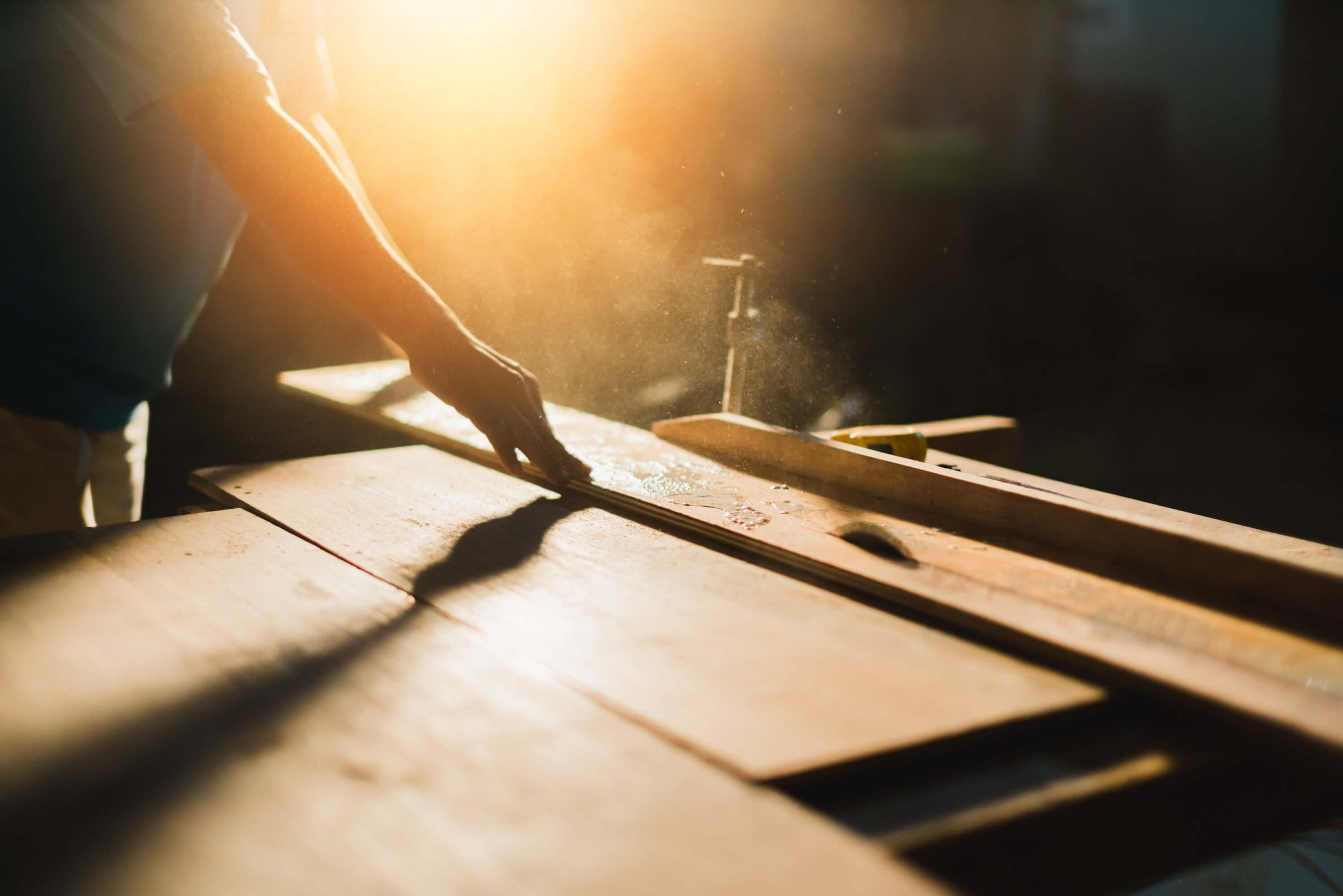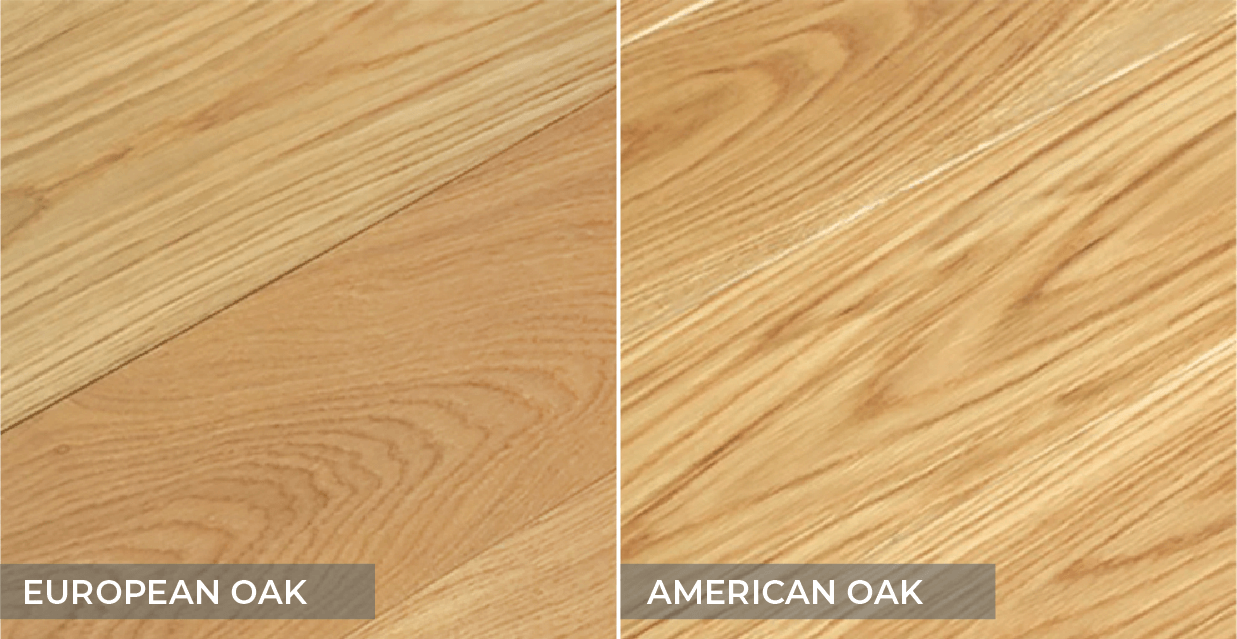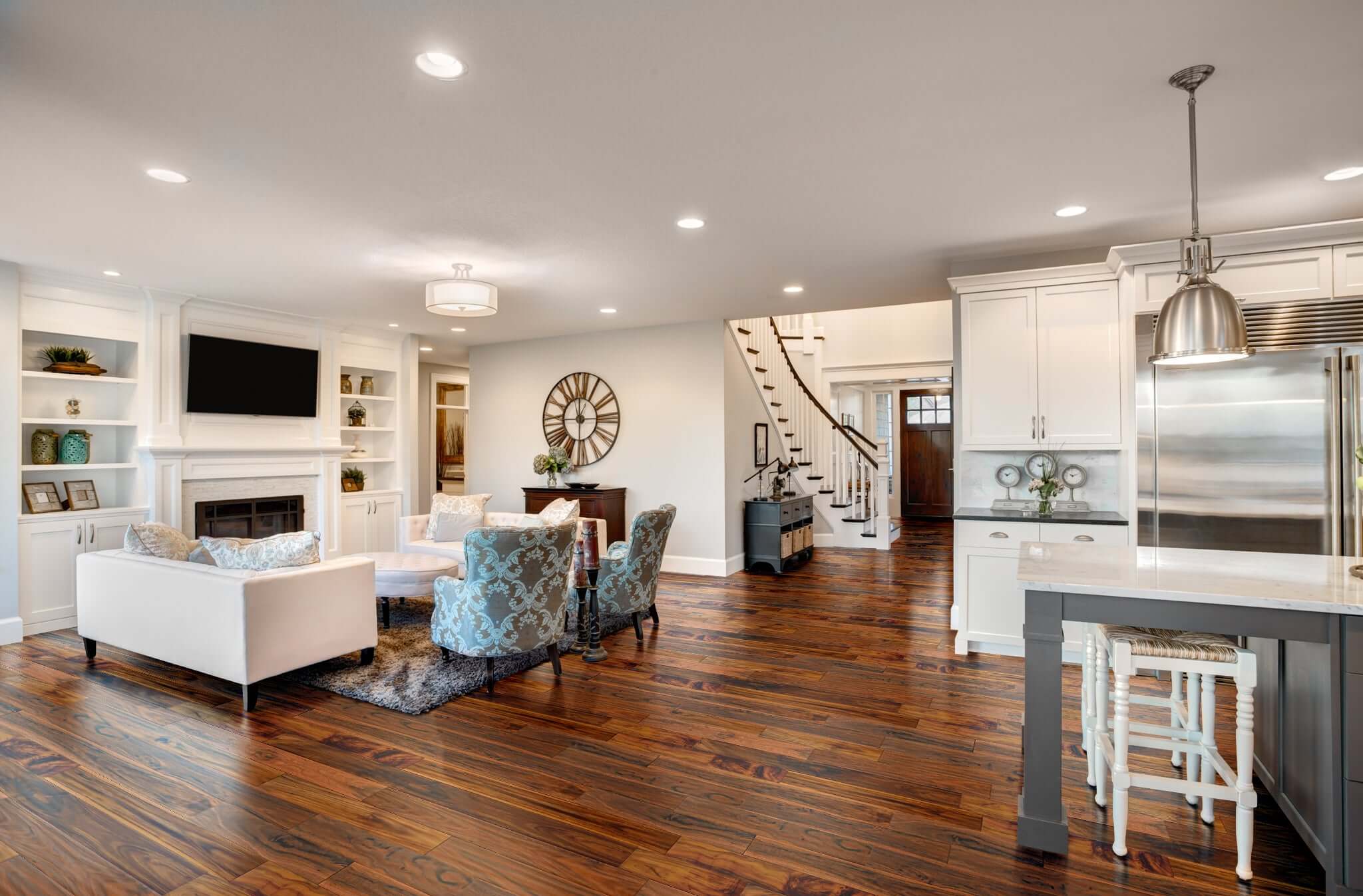
Vinyl Plank vs. Laminate Flooring: Differences and Best Applications
Flooring acts as a canvas for your interior and can fully transform the look of your home. However, even when you've chosen the color and style of flooring you want, a multitude of category options of flooring are available. Two very popular categories are vinyl flooring and laminate flooring.
Vinyl plank flooring and laminate flooring are among the most common flooring types in the United States. If you're interested in replacing your floors with vinyl plank or laminate, keep reading for helpful information about both and when you’re ready to make your purchase, our Harper Floors team is here to help.
Choosing a new flooring material can be stressful as you have many decisions to make and costs can add up quickly. In addition, materials like lumber or stone are heavy and can be tricky to install and maintain. However, both vinyl and laminate flooring are popular for their convenience, affordability, and DIY installation features. Both are also resilient and easy to clean.
Overall, there are no wrong answers when considering vinyl plank vs. laminate flooring for your home. For the best prices on flooring materials, or to learn more about types of vinyl flooring, such as WPC vinyl flooring, call Harper Floors at 1-888-807-2704.
Vinyl Plank Flooring
Vinyl plank flooring has advanced significantly since its inception in the 1800s. While thin vinyl flooring has existed for hundreds of years, the first vinyl plank was introduced to the market in the late 1970s. Vinyl Plank Flooring offers easier installation and highly advanced durability relative to its predecessors.
Today's vinyl plank flooring consists of synthetic materials bonded together and covered with a printed design layer. The planks are then embossed to create a texture that mimics real hardwood.
Providing the look of real hardwood at a fraction of the cost, vinyl plank flooring is also 100% waterproof and impressively resistant to temperamental changes in its environment, unlike real hardwood floors.
Construction Types of Vinyl Plank Flooring
While all vinyl plank flooring offers impressive durability, water resistance, and overall functionality, there are a few different construction or "core" types that exist.
a) SPC Vinyl Flooring: This type of flooring combines the durability of vinyl with a rigid core that provides increased sound insulation and strength. However, the denser center layer means the flooring will be heavier and have a firmer feel.
b) WPC Vinyl Flooring: This variation of vinyl flooring uses light materials for the core, and, like other rigid core flooring options, easily snaps into place.
c) ESPC Vinyl Flooring: This type of flooring offers stability and water-resistance while still maintaining a soft, comfortable feel. It comes in hundreds of styles, allowing homeowners to customize it as they see fit.
Laminate Flooring
A leading and cost-effective option for American homeowners, laminate flooring looks stunning in any interior. This flooring material consists of bonded wood fibers coated with an aluminum-oxide coating. Laminate flooring effectively imitates genuine hardwood floors.
While homeowners often choose laminate flooring for its price alone, this type of flooring provides a wide range of benefits. A relatively lightweight material, laminate flooring is easy to install. Additionally, the coating on its exterior is highly resistant to scratching, making the material an excellent option for homeowners with children or pets, and light commercial application.
Comparisons

Now that you know the basics of vinyl plank versus laminate flooring, we will directly compare these two flooring options to help you make a well-informed decision.
1. Cost
With a project as significant as new flooring, budget is typically the biggest factor. As the cost of any building material continues to rise across the nation, many homeowners assume that replacing their existing floors is impossible without breaking the bank.
Fortunately, vinyl plank and laminate flooring provide extremely cost-effective options for homeowners interested in replacing their flooring. Homeowners can find both materials for a very affordable price as laminate can be from $1-2 per square foot and Vinyl Plank can be from $2-4.
If budget is a barrier to your flooring project, another excellent way to save money is by shopping around for materials. If you're planning a flooring project, Harper Floors offers many affordable flooring options. Our experts will work with you to find the best flooring materials in your budget range, and are happy to help you order free samples so you can see for yourself how each will look in your home.
Verdict: LAMINATE
2. Aesthetic Appeal
While other factors play into deciding what flooring option to choose, we know you want your home to look good. Both materials strive to mimic genuine wood or other flooring materials.
Vinyl flooring, made entirely of synthetic materials, mimics the look of real hardwood flooring, and is typically thinner than laminate flooring and thus denser and more rigid. Laminate flooring, made of wood byproducts mixed with resin, also mimics the look of real hardwood flooring. Laminate flooring is typically thicker, however you won't be able to tell the thickness of each type of flooring once installed.
Verdict: TIE
3. Ease of Installation
While an experienced flooring company can handle any flooring material, the difficulty of the installation still affects the homeowner. Flooring projects typically require rearranging your home and vacating it while the contractors install the floor. Therefore, a more complex install means more time you'll be out of the house.
Fortunately, both vinyl and laminate flooring are exceptionally straightforward to install. Both types use an integrated locking mechanism that allows each plank to lock into place. Because no adhesives or additional sealants are needed, contractors can complete the entire process in as little as one day.
Vinyl flooring offers more options for installation than laminate, beyond the "click-and-lock" method. There is a "peel-and-stick" method, panels that you glue down, and more. This can make it easier to install on your own, though if you're working with sheet vinyl, it's best to call in the professionals.
Verdict: VINYL
It is important to note this is only because sheet vinyl allows for installation over imperfect subfloors, while the floating installation method for most vinyl plank and laminate floors require leveled subfloors.
4. Water Resistance
While we all strive to be careful, spills are an unavoidable part of life. Especially if you have children or animals in your home, someone will eventually knock water or other liquid onto the floor. Even for those who live alone, water leaks or appliance malfunctions can lead to water pooling on your floor.
While laminate flooring creates an effective seal when installed correctly, the fact remains that the material consists of wood fibers. Any wood material will eventually absorb water when left in contact with it, which can cause warping and swelling. These problems can be challenging to deal with in flooring, so be sure to dry laminate flooring quickly if a spill occurs.
Vinyl flooring has a significant advantage in this category. As vinyl is a naturally water-resistant material, vinyl floors offer unparalleled water protection. Conversely, laminate flooring should not be exposed to moisture even when cleaning, so this category is not a close call. Altogether, vinyl floors in your home can give valuable peace of mind to homeowners who often deal with spills.
Verdict: VINYL
5. Durability
With durability, both types are sure to impress. Laminate floors are highly resistant to scratches and scuffs as their resilient outer layer protects the materials within. However, despite the impressive resilience of laminate floors, vinyl floors still win this category.
Vinyl plank flooring withstands wear and foot traffic better than any other flooring material. As a result, business owners often use it in commercial settings. Most homeowners put far less wear on their floors than the average business, so you can have complete confidence that your vinyl floor will look brand new for years to come.
You can't go wrong in this category regardless of where you land on vinyl vs. laminate flooring. While laminate flooring is vulnerable to water damage, both types resist scratching and impact exceptionally well. Still, if durability is your main priority, vinyl has the upper hand in this category.
Verdict: VINYL
6. Lifespan
Installing new floors can be stressful, so choosing floors that will last is an excellent way to minimize stress. Vinyl and laminate flooring are both very resilient materials, but you may wonder which of these flooring options will last longer in your home.
The good news is that both materials should last a very long time with proper care. Unfortunately, it's also important to consider that these materials typically cannot be recoated to hide damage, making proper maintenance critical. The good news is it is incredibly easy to replace individual planks for both laminate or Vinyl.
Ultimately, however, vinyl has an edge in this category as well. We’ve already discussed vinyl's resistance to water and damage, but these factors also play a role in determining lifespan. Even cautious homeowners will eventually spill something on their floors, and vinyl is better at withstanding this type of accident.
Therefore, while both materials are long-lasting, the resilience and durability of vinyl plank flooring is difficult to match.
Verdict: VINYL
Conclusion
While simply skimming the verdicts of each section may give the impression that vinyl is the far better option, the truth is considerably more nuanced. Ultimately, vinyl and laminate are extremely well-rounded materials, and most of the categories above were very close between them. The true answer to which material is superior depends on the application and your needs as a homeowner.
While there is no definitive winner between vinyl vs. laminate flooring, certain applications favor one over the other. For instance, vinyl does a better job of standing up to the wear of commercial applications. However, laminate flooring is more than durable enough for your average living rooms.
At any rate, you should have a keener understanding of the differences between vinyl and laminate flooring. Call 1-888-807-2704 today to learn more and explore luxury vinyl floors by Harper Floors.




